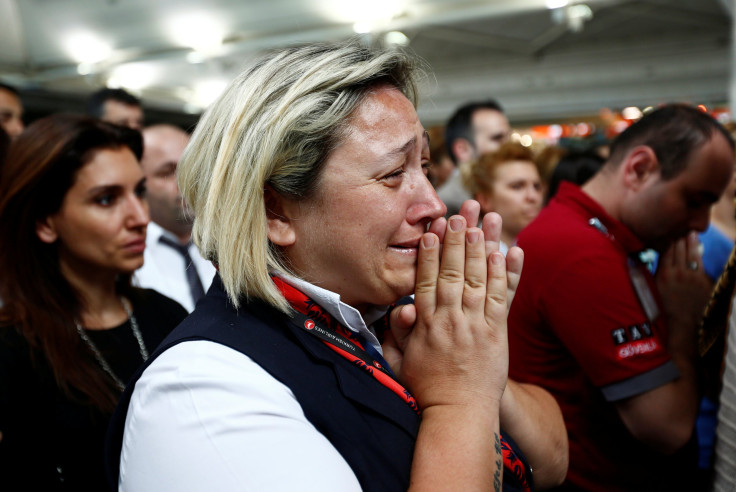Does Airport Security Work? At JFK, TSA Breach Raises Questions About Passenger Safety, Terror Threats

Nearly a dozen passengers walked through a security lane Monday without being screened by Transportation Security Administration agents at John F. Kennedy International Airport in New York City in a security breach that raised questions about potential terrorism threats and airport safety. TSA agents waited two hours to tell Port Authority officials about the incident, further drawing criticism.
Three of the unscreened passenger set off a metal detector, but no one was there to operate the X-ray machines, complete pat-downs or perform secondary screening, the New York Daily News reported. The breach unfolded around 6 a.m. at Jet Blue’s Terminal 5 after agents left the area unsupervised. The agents then searched for the unscreened passengers themselves instead of involving the police. Port Authority officials later searched the terminal for the travelers, but could not find them.
“Early reports indicate three passengers did not receive required secondary screening after alarming the walk-through detector,” the TSA said in a statement. The agency said it was “confident” the incident represented “no threat to the aviation transportation system.”
“TSA works with a network of security layers both seen and unseen,” the statement said. “Once our review is complete, TSA will discipline and retrain the employees as appropriate.”
But Gavin Pruett, 20, who was traveling home to California from New York over the Presidents Day holiday weekend, told the New York Daily News the security breach was alarming.
“You never know what people are thinking or what their motives are,” he said. “For someone to go unscreened, that’s kinda questionable. Especially at JFK.”
U.S. Rep. Pete King (R-Long Island) called the breach "disturbing." “We are looking into it and trying to get more information,” he said.
The U.S. has spent more than $1.1 trillion on homeland security, including airport screenings, after the Sept. 11, 2001 attacks that saw 19 men armed with utility knives hijack four airplanes and kill nearly 3,000 people. The attacks saw changes including radiation scanners and chemical sensors added to the nation's airports, but critics argue the overhaul didn't make the U.S. any safer after recent mass killings at airports in Florida, Turkey and Belgium.
“Attempting to ‘protect’ against mass casualty attacks is a somewhat hopeless task due to the near infinite number of targets,” Mark Stewart, a professor at the University of Newcastle in Australia, who studies how to guard infrastructure from terrorist attacks, told the New York Times after an attack at Istanbul Ataturk Airport in 2016 killed 41 people and left more than 200 people injured.
NEW: Quite a statement from the Port Authority of NY/NJ on today's breach at JFK and the actions of TSA: https://t.co/i1oI6u9RER pic.twitter.com/L5R0d9yCm1
— Tom Winter (@Tom_Winter) February 20, 2017
© Copyright IBTimes 2024. All rights reserved.






















